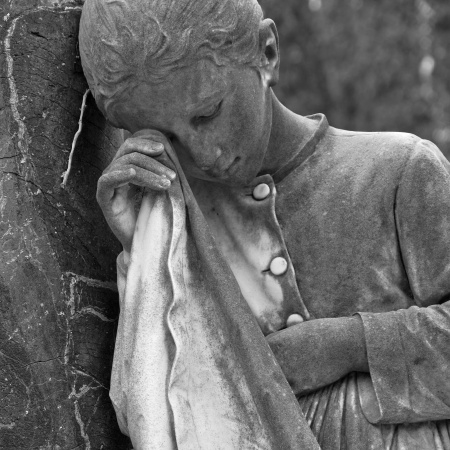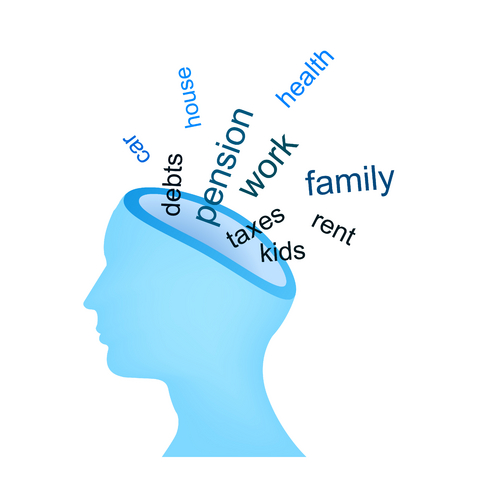MEDITATION TIP OF THE WEEK
…IS A SERIES OF SHORT, EASY TO REMEMBER, AND BASIC TIPS ON HOW TO MEDITATE. PLEASE LET ME KNOW WHAT YOU THINK, IS IT HELPFUL?
Meditate on Your Suffering
How many of us try to flee from our suffering, doing whatever we can to alleviate the pain and anguish that comes with suffering of any kind? Probably most of us. So, why would any of us try to stay with our suffering? Would doing so even be helpful?
What about meditating on your suffering? Could it actually be helpful to meditate with suffering in your mind? Let’s take a look.
What is Suffering?
When you suffer, where is it that the suffering happens? Is it in your mind? Is it in your body? Is it
thoughts,
emotions,
sensations, or a combination of the three? And, if it’s in your mind, what does it feel like?
What I’ve found is that when I’m suffering, it’s usually due to one of the following reasons; either something has happened that I didn’t want to happen, or something that I wanted didn’t happen. Think about this, is it the same for you? Do you suffer when what you don’t get what you want or you get what you don’t want? Probably so.
When I stop to look at my suffering, I find that it’s usually because of my thoughts about what’s going on in my life. For example, as a sufferer of chronic pain, I go through periods where the sensations of pain are really intense. When this happens, I find that I can get caught up in wishing that it were different. Even though the pain is a physical sensation, the real suffering comes from the fact that I don’t want to be in pain, that is – the suffering occurs within my mind.
During those times, I have a choice about whether I can accept what is or, try to get away it. And it seems to me that when I accept what is, the suffering that I experience is almost…nonexistent!
Is the Cause of Your Suffering Permanent?
The reason that we suffer is that we believe that things are permanent. While this way of viewing life is usually associated with Buddhist philosophy, I’ve found that it’s what I experience. When I get stuck on thinking that the bad things in my life are going to last forever, I suffer. And, usually, the things that I call “bad” change. And, when I get stuck on thinking that the good things in life should last, and they change, I also suffer.
How permanent are your states of mind? Think about happiness, sadness, anger, and joy; do these feelings and states of mind exist permanently, or are they transient? Have you ever noticed how you can be in a great mood, perhaps because of something good happening in your life, and then, in a moment, perhaps due to an argument with a spouse or a bad day at work, your state of mind can change? Have you noticed how quickly you can go from sadness to happiness, or vice-versa? Why is this?
Our thoughts and all of the arisings that occur with our mind are impermanent, fleeting, transient. Like
summer thunderclouds in a blue sky, our thoughts come and go. Yet we suffer so much because we believe that they’re here to stay. Isn’t that strange? If these thoughts and feelings disappear after some time, why do we suffer so much because of them?!
Meditation – The Power of Engaging What Bothers You
It’s been said on this site and in many other places that meditation isn’t about blissing out in some trance-like state, unaware of your surroundings. Nor is it about trying to get rid of the temporary phenomena that arise within your mind. Meditation is about being with whatever is,
remaining present in the face of all that arises. How does this way of meditating relate to suffering?
Imagine meditating while you’re suffering, what does that feel like? What if, instead of trying to run away from your disturbing emotions, you engage with them and see them for what they really are, temporary and impermanent? How do you think your life would change if you were able to be with whatever arises within your mind in a state of grace and peace, instead of constantly running after the good thoughts and fleeing what makes you suffer? Would your life be different?
So, How Do You Meditate?
Maybe you’ve already got a meditation practice. If that’s the case, great! Keep it up. And feel free to use all of the content from this site to support you in your efforts. If you haven’t started to meditate, begin now.
Many people don’t meditate because they believe that they need to do “something special” in order to meditate, maybe you’re one of them. “Doing something” special isn’t the case. All you need is your breath, and a few minutes of time set aside to begin your practice. Here are some tools to get you started:
This site has tons of tools for learning how to meditate and be compassionate.
Check out the Related Mindfulness and Meditation Articles below. I also encourage you to look through the HUNDREDS of articles that I’ve written and especially check out my weekly meditation tips and other useful meditation materials provided for your health and well being. And please let me know if you’d like to discuss anything with me, have any questions or need clarification regarding anything that I’ve written about.
Thanks for visiting and have a mindful day.






One of the sorts of suffering I deal with not infrequently as a nurse is when a patient is in distress. Sometimes I can act to alleviate physical pain or anxiety. But there are other times when all I can do is sit by the patient’s side and be present. Sometimes, I have to walk out of the room and take care of myself first. (Put your own oxygen mask on first before helping those around you!) In that regard, I’ve found the teaching of Quaker Parker Palmer, in his essay “The Broken-Open Heart,” particularly valuable. He shows the transformation from the broken heart to the broken-open heart, a heart that in its vulnerability is open to relationship, compassion, and healing. (The essay can be downloaded at ihmdonate.org/dotAsset/7abf3d9c-4c1e-42a7-9183-caf032459881.pdf)
Hi Judy – What a great comment. When you say that “all I can do is sit by the patient’s side and be present…” that’s not a small thing, is it? For me, being present is what meditation is really about, being present, in the present moment, undistracted and unfettered by thoughts and emotions, able to show up for whoever you’re with. And in terms of walking out of the room to take care of yourself, sounds like you’ve got your self-care down…and that’s all meditation is, caring for oneself in order that one may care for others! I checked out the article, ihmdonate.org/dotAsset/7abf3d9c-4c1e-42a7-9183-caf032459881.pdf); it’s great! I encourage others to read it as well, wonderful. Thanks so much for sharing your experience Judy. Take care, Jerome
Thanks for the post, and the link to Parker Palmer’s article – ‘love it!
Hi Spafford – Glad that you enjoyed Parker Palmer’s article, it was shared with me by another reader. Palmer’s summary at the end of the article, the “three things we all must learn to do if what Keats called our “world of pains and troubles” is to become a school of the Spirit, the heart, the soul…” is a wonderful summation what we each need to do to “…acknowledge and name our suffering honestly and openly,” “move directly to the heart of it,” thus “allowing the turmoil to settle and an inner quietude to emerge…” Great stuff! Feel free to share with me and other readers here anything that you feel may be of value around the topic of suffering, meditation, compassion and such. Take care, Jerome
I have been a nurse and have had a meditation practice for a long time. It took me a long time to take care of myself. I did find once I could embrace my own suffering for however long or short, It increased my ability to accept and be with the suffering of others. This seemed to ease the suffering for myself and for those I serve. Meditation has had a key role in turning suffering in to a lesson I could use to empower myself and others. Thank you for this blog. I am part of a sangha where I can meditate with others and talk about my practice but not with other nurses. Hopefully blogs like this will change that.
Sincerely,
Barb Clarke
Hi Matthew – Here here to changing how nurses talk about meditation. Thanks for sharing your journey on turning your suffering into personal empowerment. Great! Take care, Jerome
This morning I introduced myself to Jerome saying “I am a very bad student of Sogyal Rinpoche”. I really meant it. I have lost contact with the Sangha, with the Dharma and what is worst, with my true nature. However today, reading this and other articles I have started to remember the teachings…the causes of suffering… hope and fear… hope of getting what you want and fear of getting what you don´t want. Realizing this is like medicine for the suffering mind. Thank you Jerome once more for been there. I might not be such a bad student now.
Hi Alberto – Thanks for sharing your comment. I think that regardless of whether we have a teacher, or whether we’re in a group, or sangha; even whether we associate our meditation practice with a particular spiritual discipline it’s important to remember: we’re never a bad student if we’re making an effort and recognizing what’s preventing us from practicing. As you said, hope and fear can cause so much suffering…especially when it’s hope for a good meditation practice, and fear that you’re not doing it right. Relax, enjoy, and simply be – there’s nothing better than that. Take care, Jerome
That’s right, why to obscure our mind with concepts like good or bad?. As you say, simply relaxing and being open our mind to the present moment, the space-place where we can enjoy ourselves, and from where we can give better help to other.
Nice article. Meditation has the immense power to help one to come out of sufferings.
Indeed it does! Thanks for commenting.